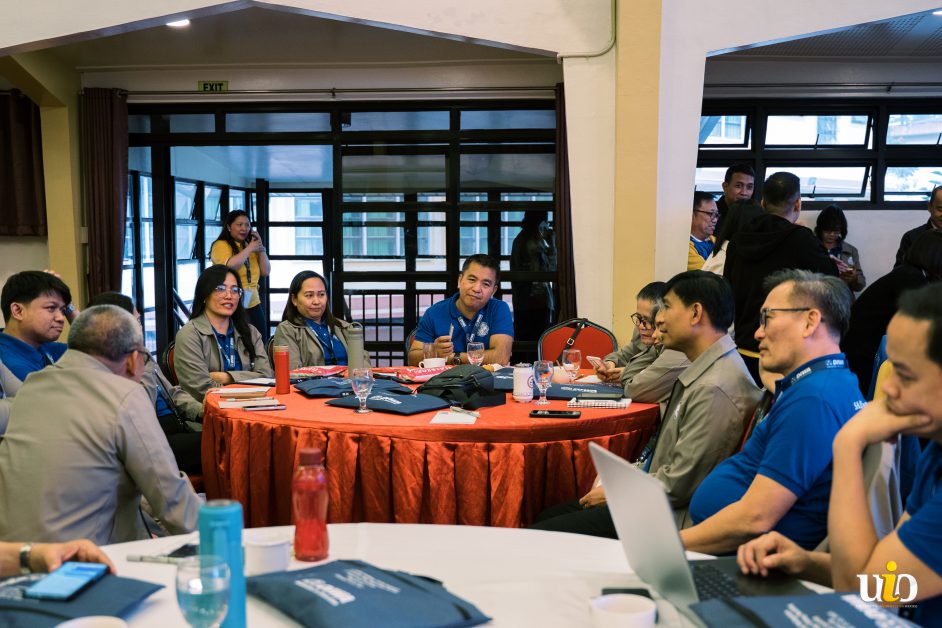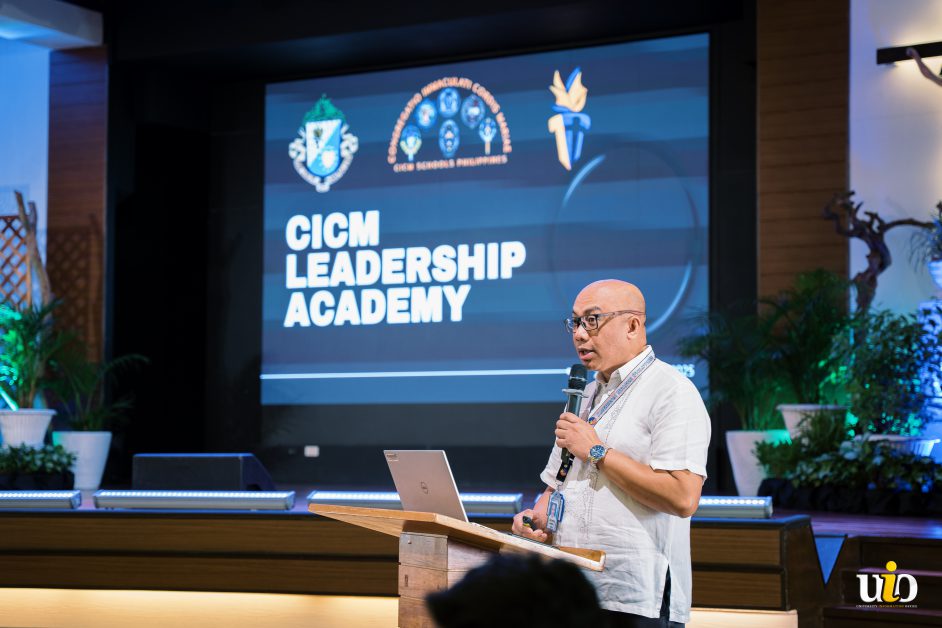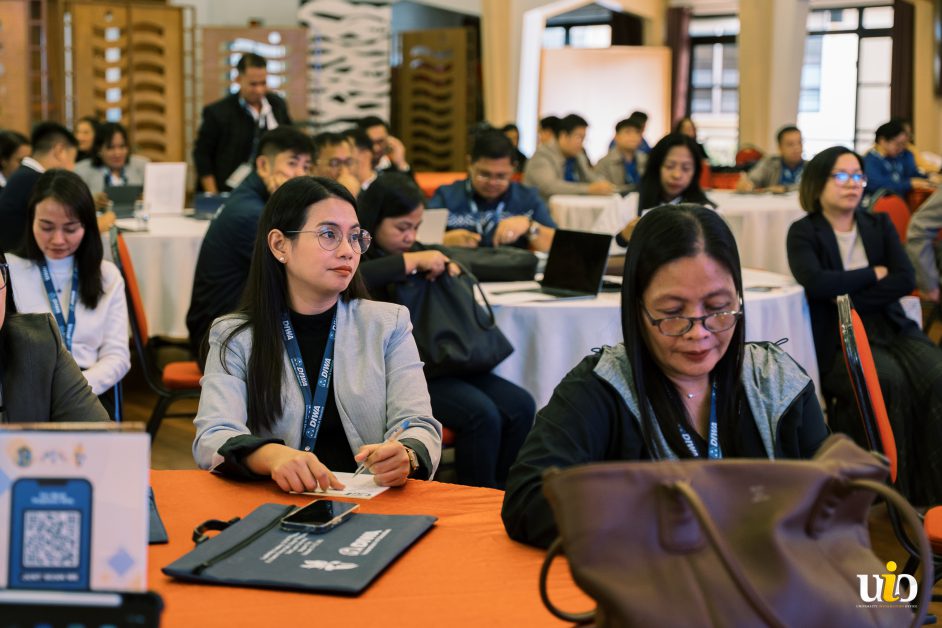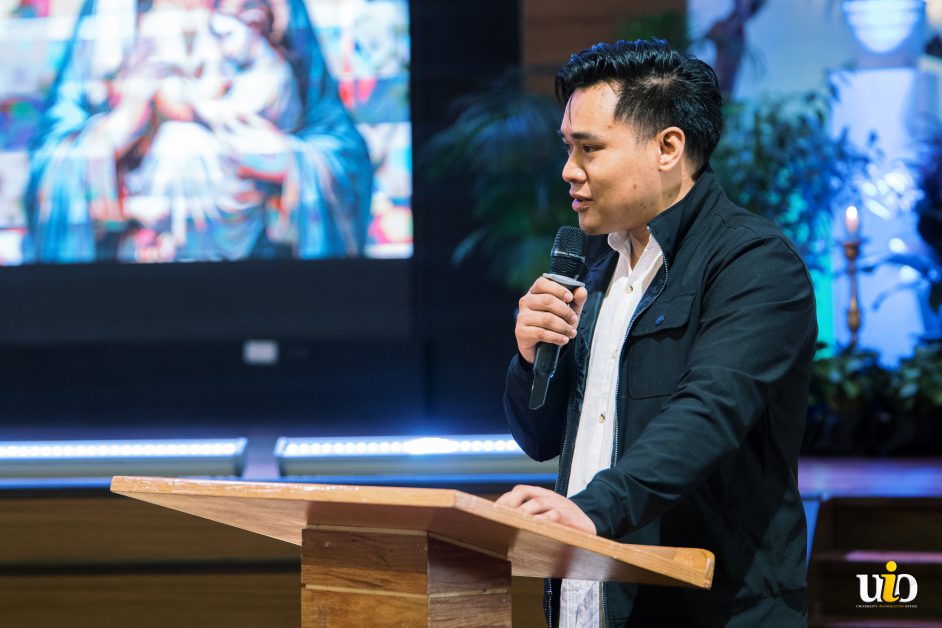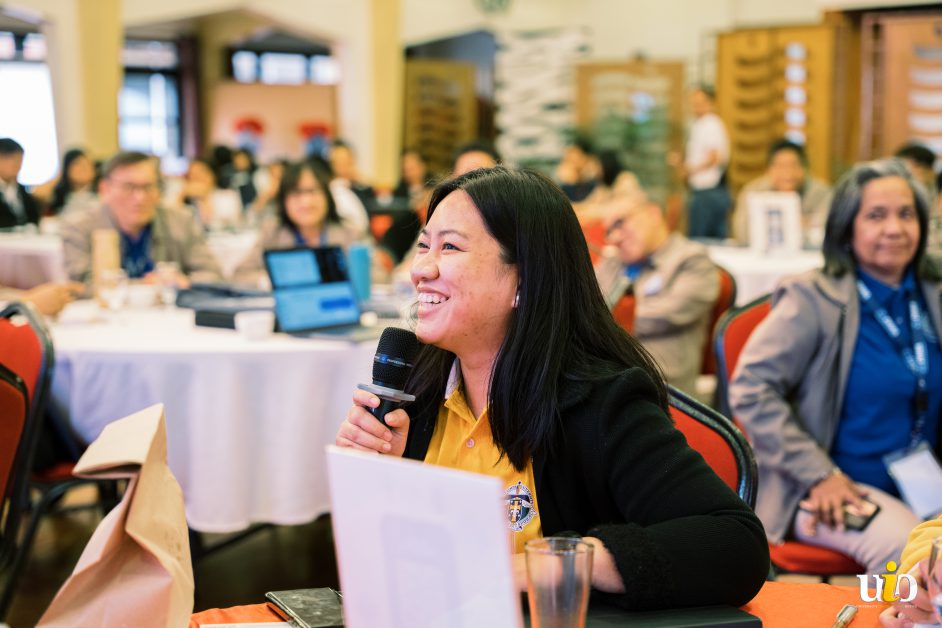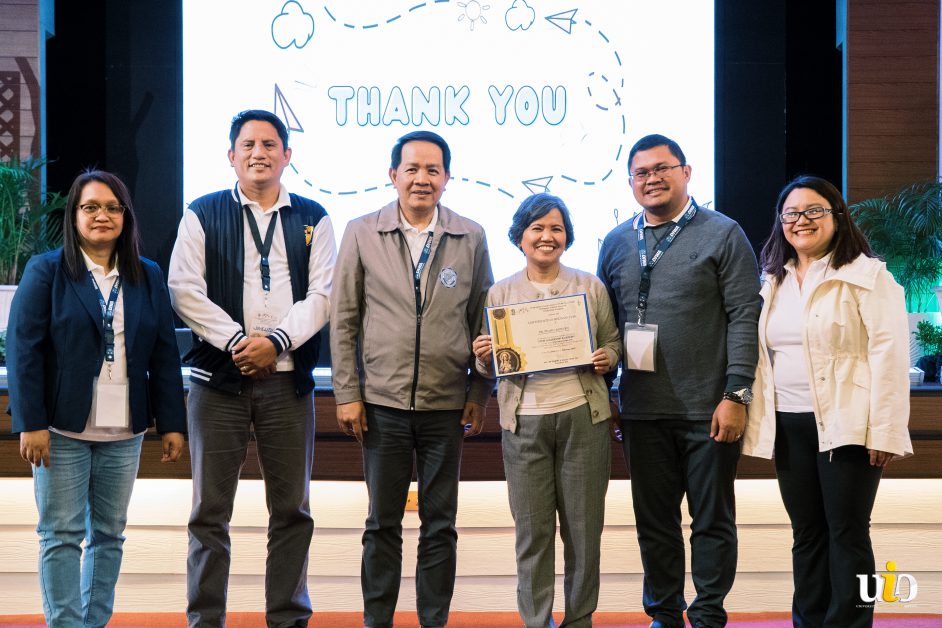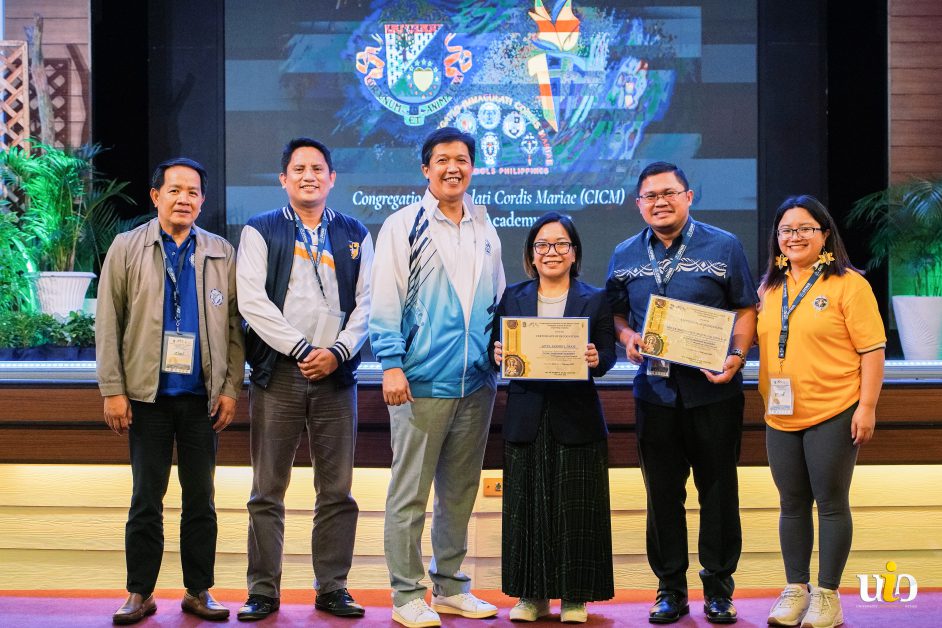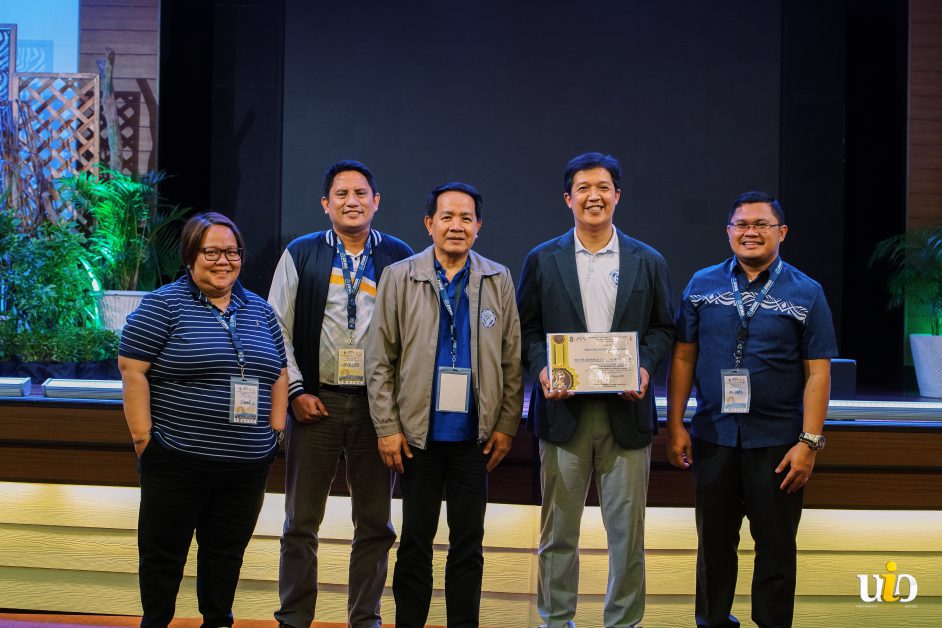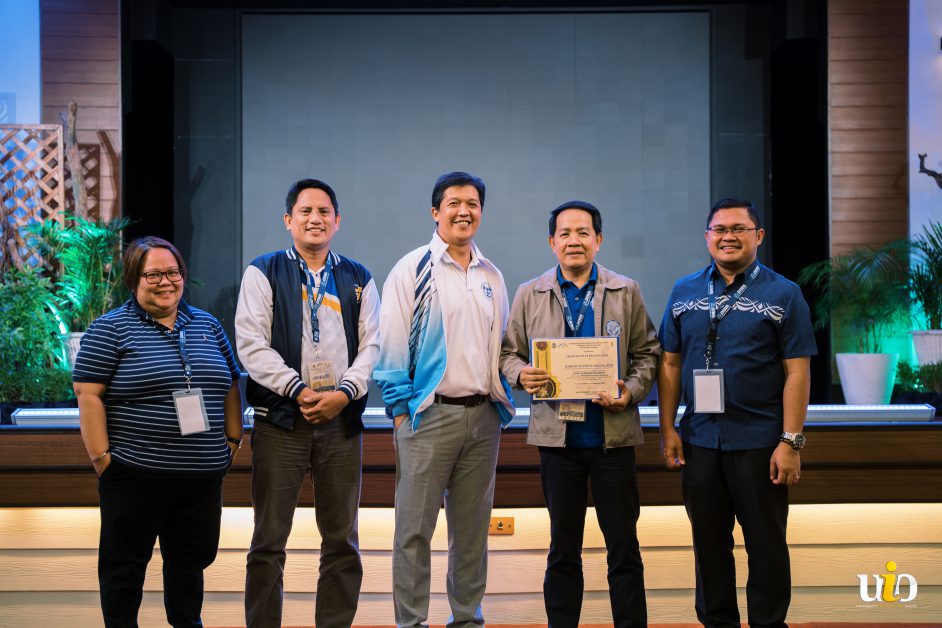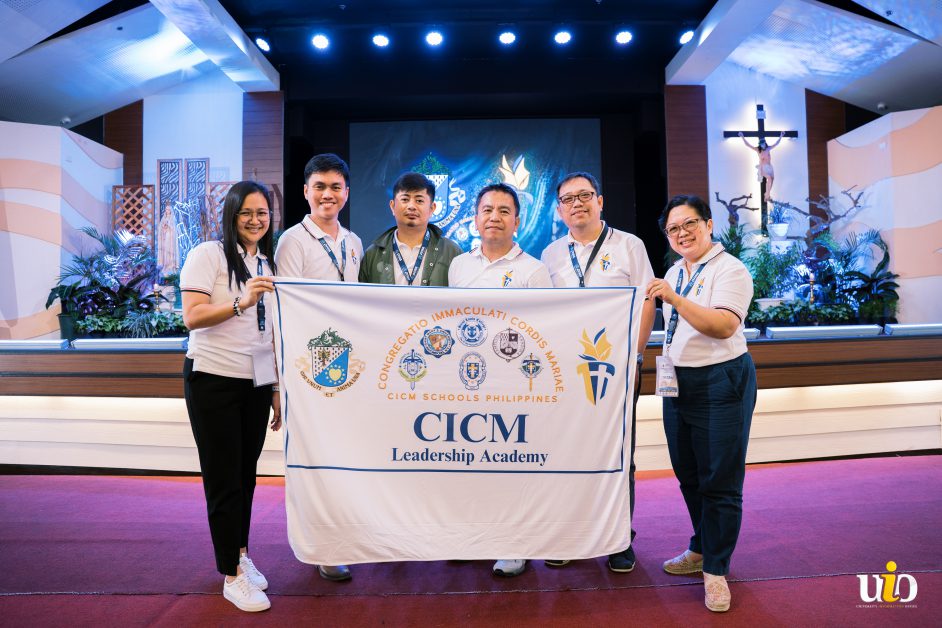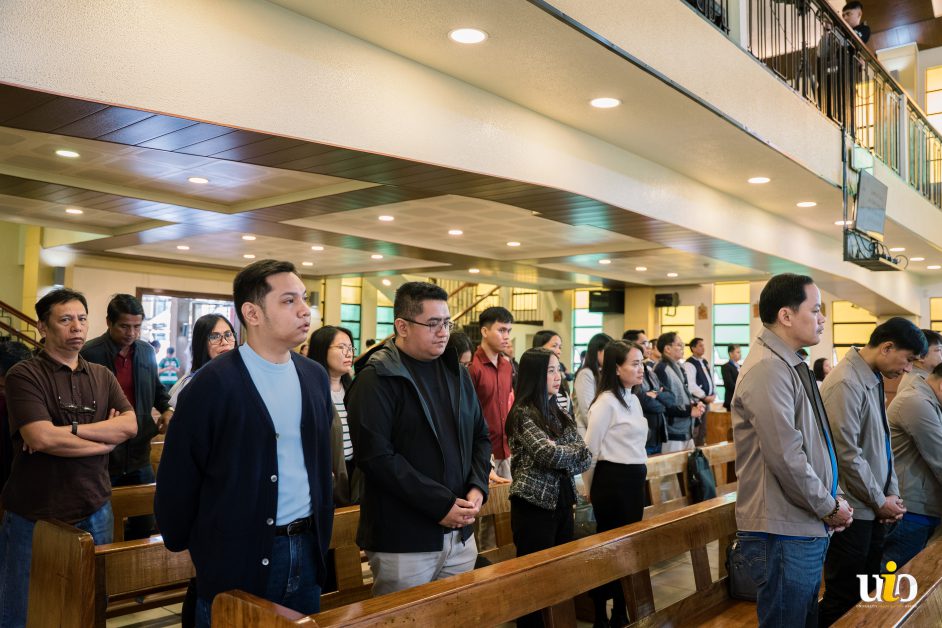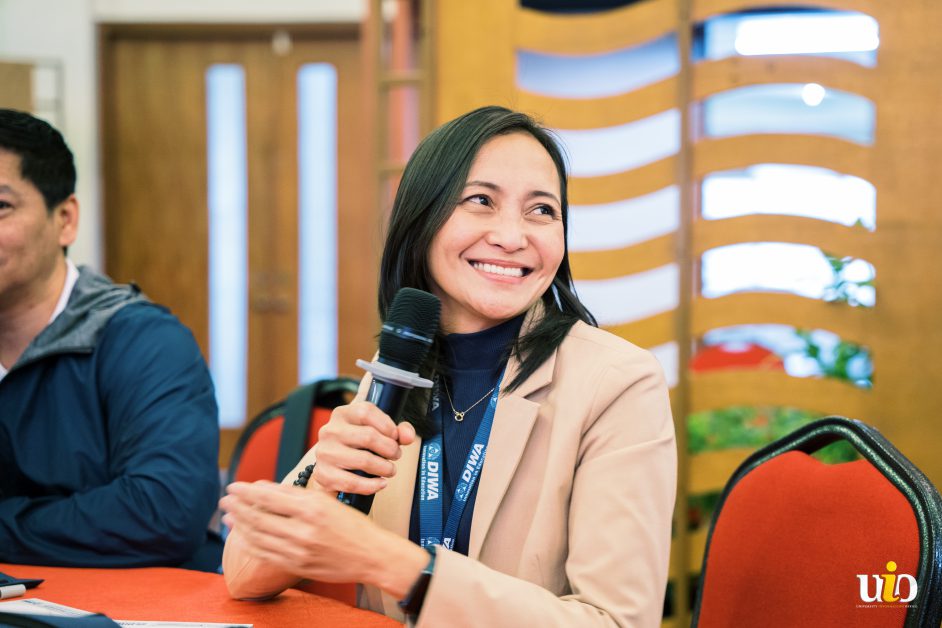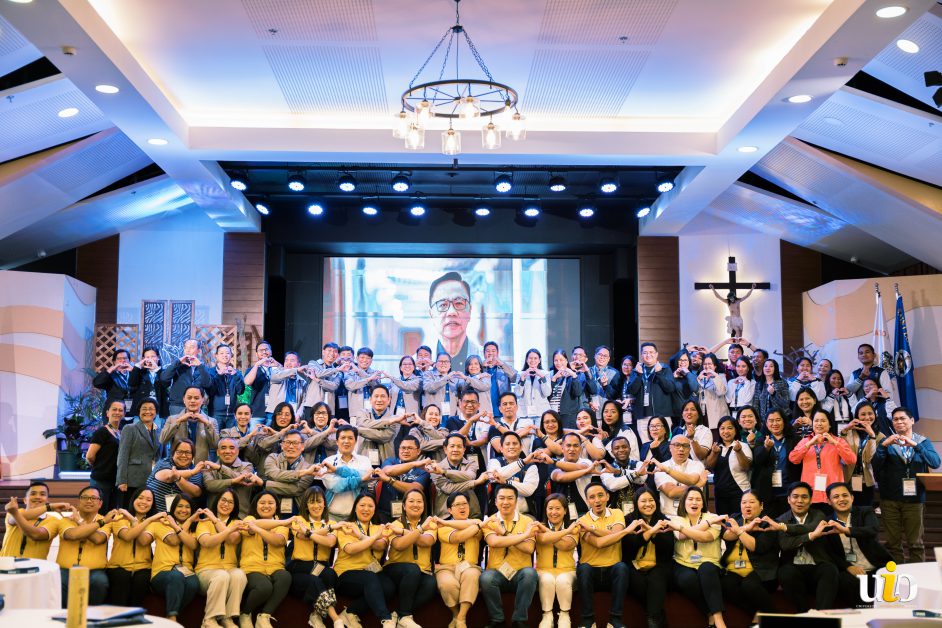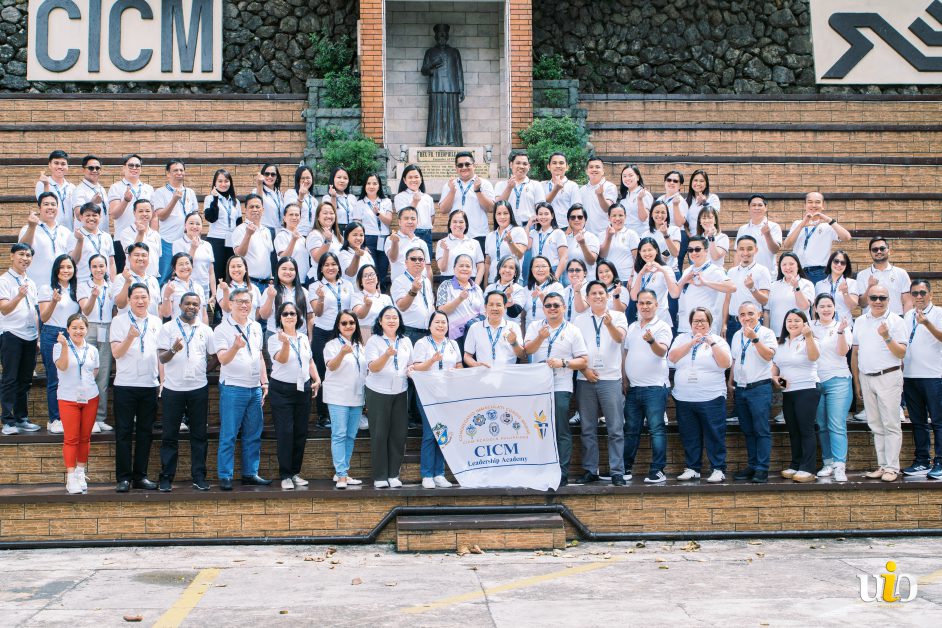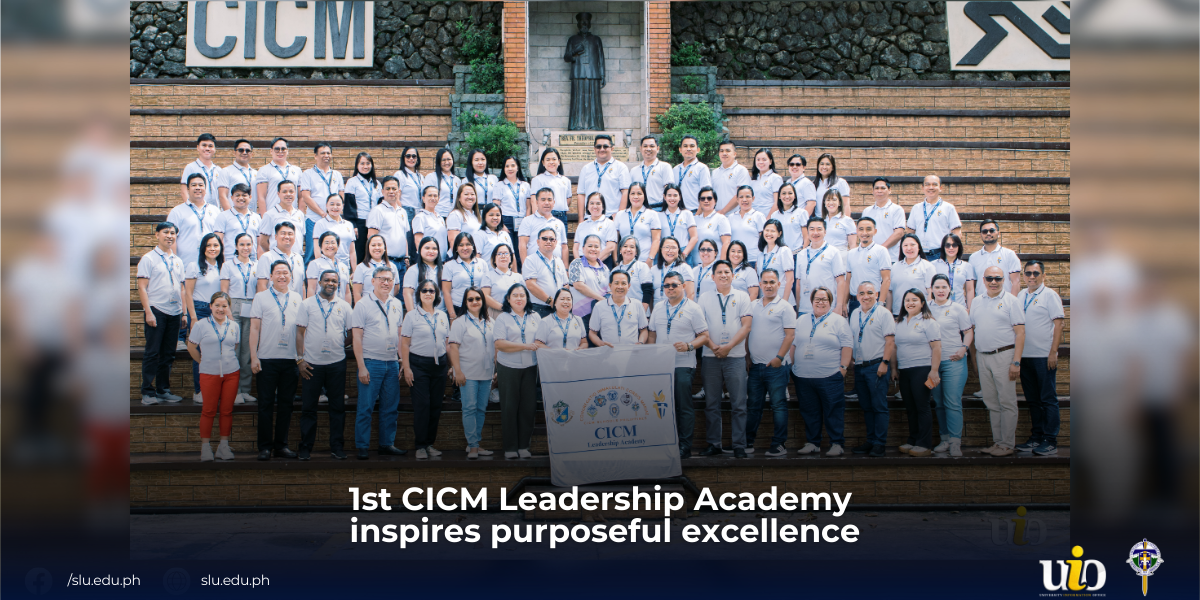Hosted by Saint Louis University (SLU), the Congregation of the Immaculate Heart of Mary (CICM) Leadership Academy commenced from 21 to 22 February 2025 at the Fr. Francis Gevers Hall, Diego Silang Building, SLU Main Campus.
As a landmark event, the gathering brought together the network of CICM schools, including Saint Louis College-Cebu (SLCC), Saint Louis College San Fernando City (SLC-SFC), SLU-Baguio City, Saint Mary’s University-Bayombong (SMU), and University of Saint Louis-Tuguegarao (USL).
The event opened with a Eucharistic Celebration officiated by Rev. Fr. Macwayne N. Maniwang, CICM, PhD and USL President. He emphasized the importance of denying ourselves and carrying our cross, stating, “When we deny ourselves, we follow the lead of God. As leaders, we need to carry our crosses because we cannot please everyone.”
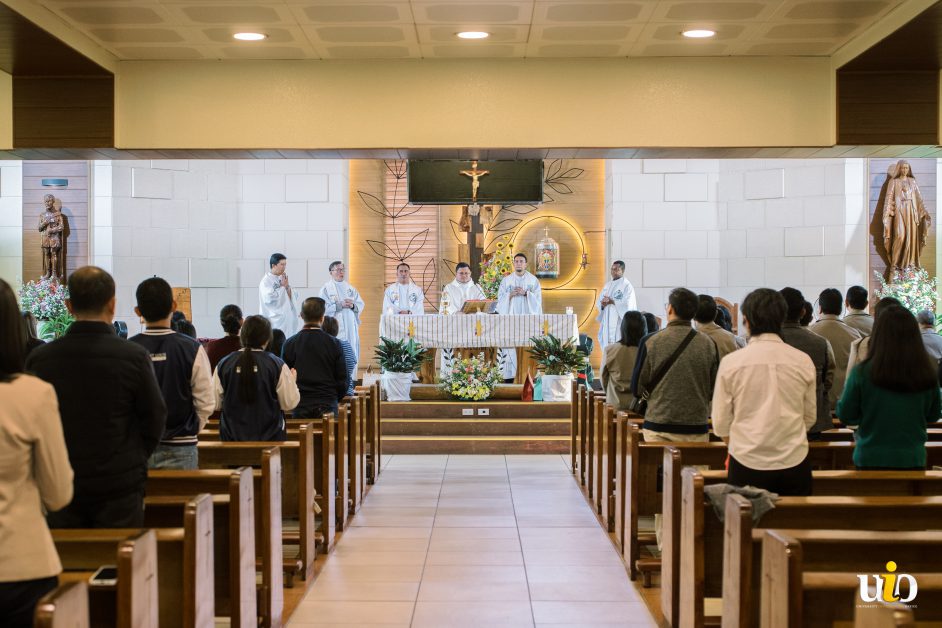
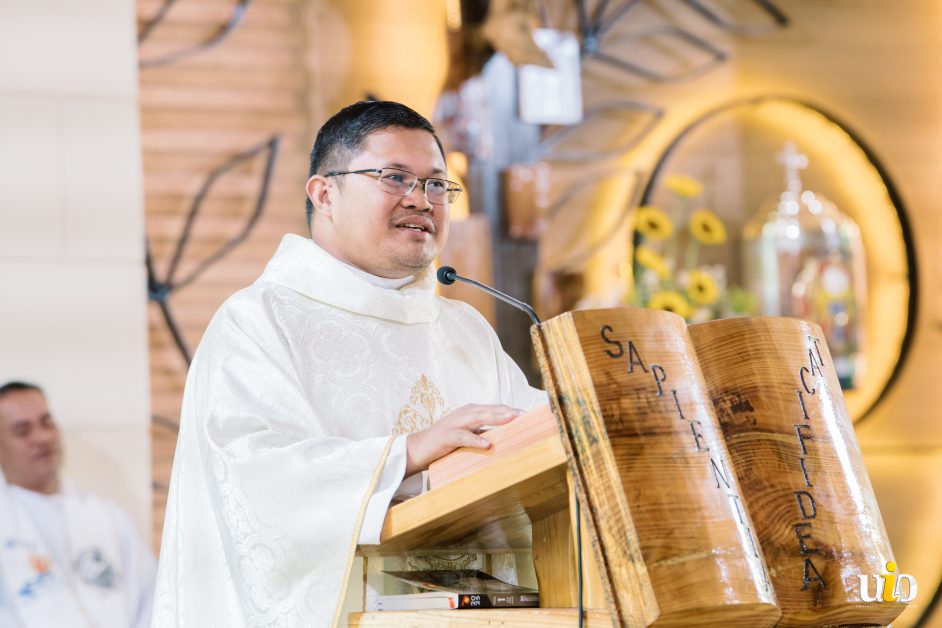
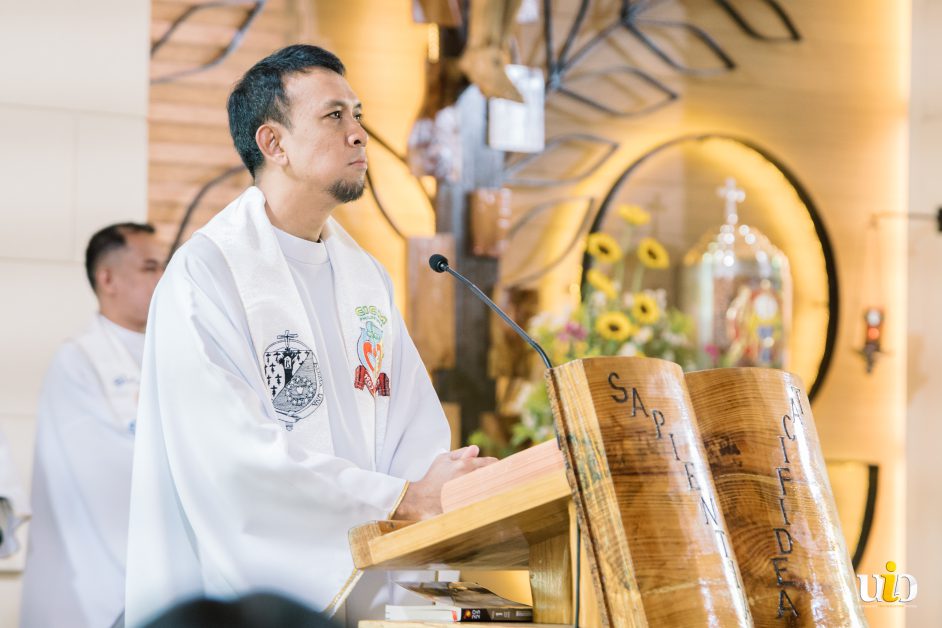
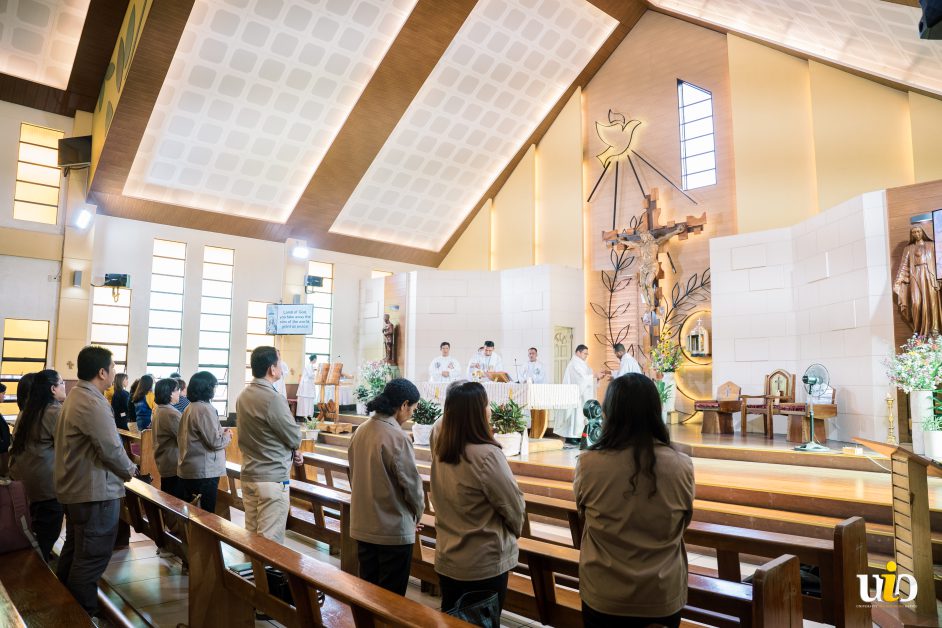
Following this, Rev. Fr. Gilbert B. Sales, CICM, PhD, the President of SLU, delivered his welcome address to the CICM leaders. He highlighted the significance of the gathering and remarked, “Together, we will investigate strategies that can adapt to the evolving educational landscape, ensuring our institutions not only endure but also flourish amidst challenges.”
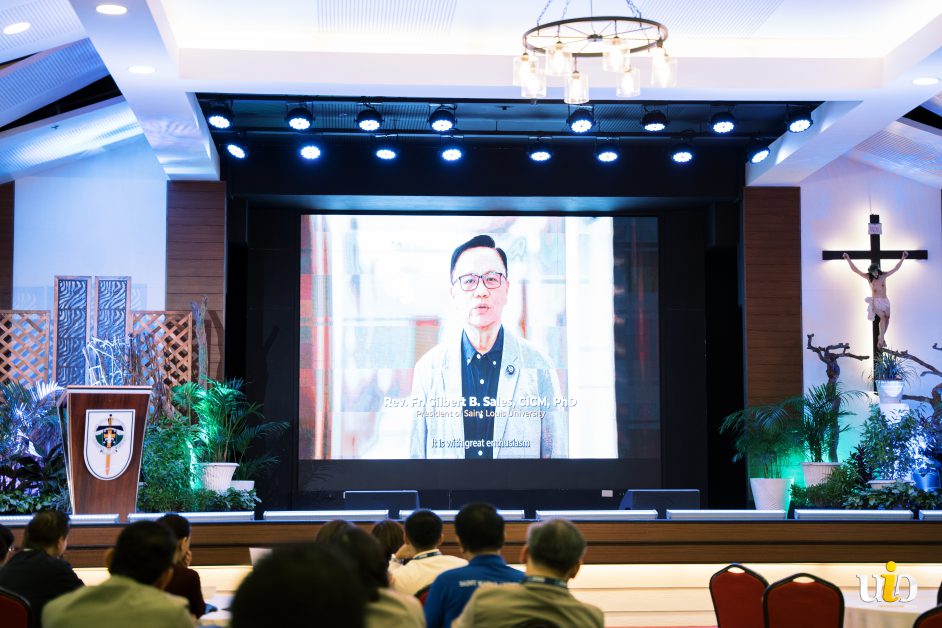
As noted by the President of the host school, the CICM Leadership Academy is a gathering of leaders that does not only represent meeting of minds, but is also a unique opportunity to deepen collective commitment to the mission of educational institutions, rooted in the teachings of the Catholic Church and the charism of the CICM Congregation.
CICM Leadership Academy Day 1: Fostering stewardship, servant leadership, and transformational leadership
The first day provided invaluable knowledge and experience of resource speakers, including John Octavius S. Palinam, PhD, SMU President; Rev. Fr. Macwayne N. Maniwang, CICM, PhD, USL President; Rev. Fr. Roderick G. Villamar, CICM, PhD, SLC-SFC President; and Monina M. Manalang, PhD, Holy Angel University (HAU) Associate Vice President.
Dr. Palina tackled the first topic, “Good Shepherd as Caretakers in CICM School Leadership,” emphasizing the importance of being caretakers and seizing opportunities. He stated, “We have a responsibility and cannot pass up the chance to serve our institution and community.” He also discussed SMU’s initiative to address community needs by establishing the Community Engagement and Indigenous Peoples’ (IP) Studies Center. Additionally, SMU’s efforts in combating poverty and enhancing education have earned it recognition as a sustainable university aligned with SDG 11, Sustainable Cities and Communities.
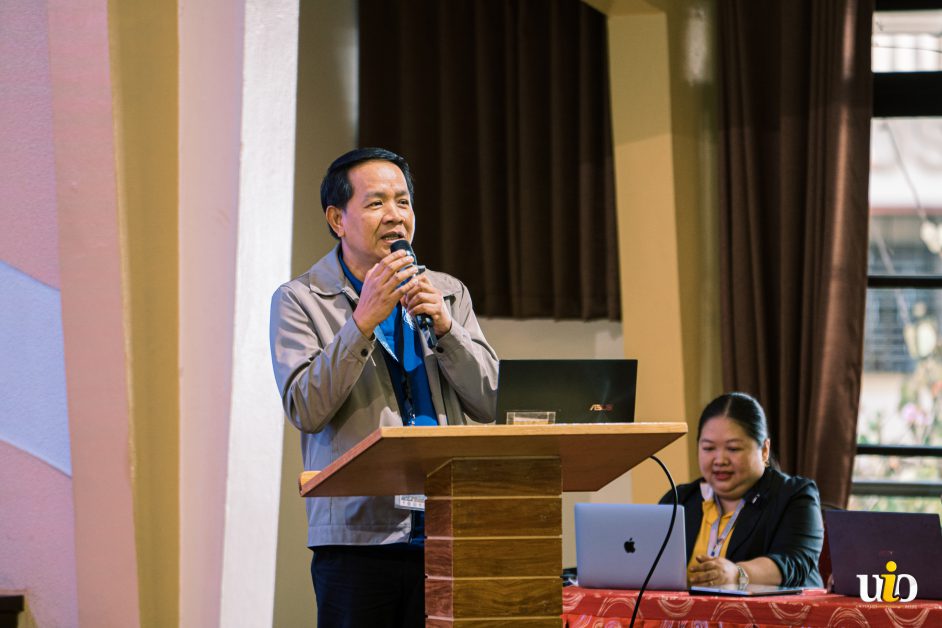
Afterward, Rev. Fr. Maniwang and Legal Liaison Atty. Jasmin Lavadia Waje of USL discussed the concept of being a “Good Steward” in management and sustainability. Fr. Maniwang highlighted the need to be diligent, faithful, and wise in the use of resources. He urged everyone to share their blessings and embrace risks. “We have to take risks because sometimes in taking risks, the vision of CICM that seems blurred becomes clearer,” he stated.
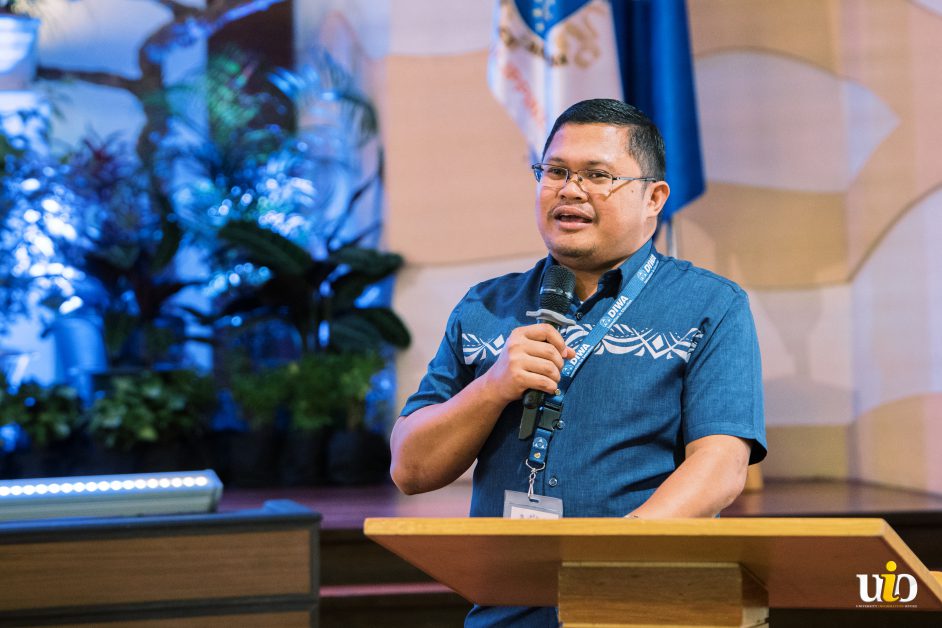
Atty. Waje then spoke of being accountable, which means to harness a stewardship mindset in leading a sustainable organization and having courage to make difficult decisions. “True accountability is not just about correction, it’s about restoration,” she stated.
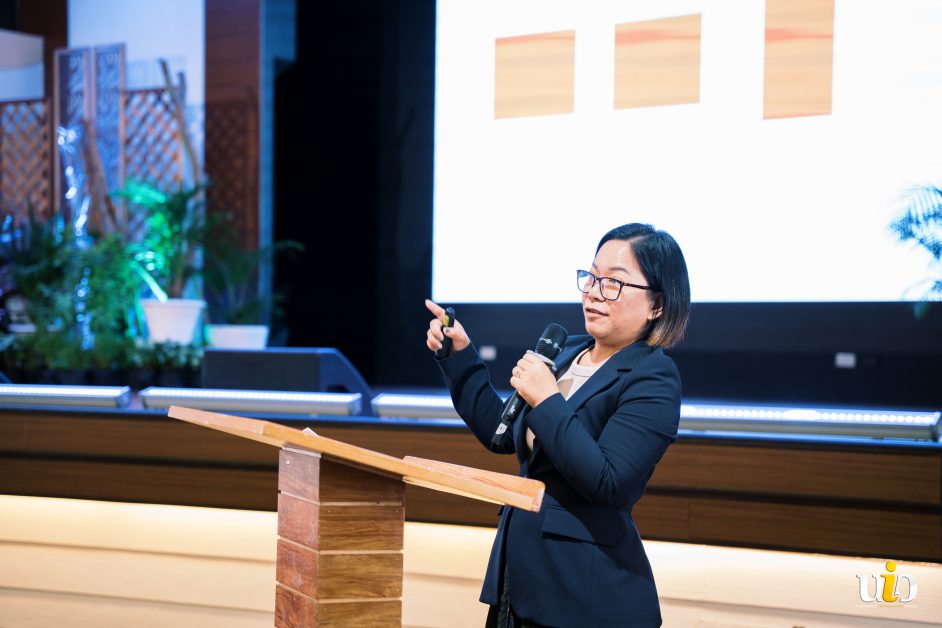
During the afternoon session, Fr. Villamar presented his talk titled “Servant Leadership: A Way to Lead in CICM Schools.” He explored the importance of fostering strong relationships between leaders and followers, stating, “Servant leadership focuses on the growth and welfare of others; it’s not about ROI, achievements, or accomplishment reports. A leader must be a servant first.” He urged the participants to embody servant leadership by upholding values such as service, empathy, integrity, active listening, and commitment to growth.
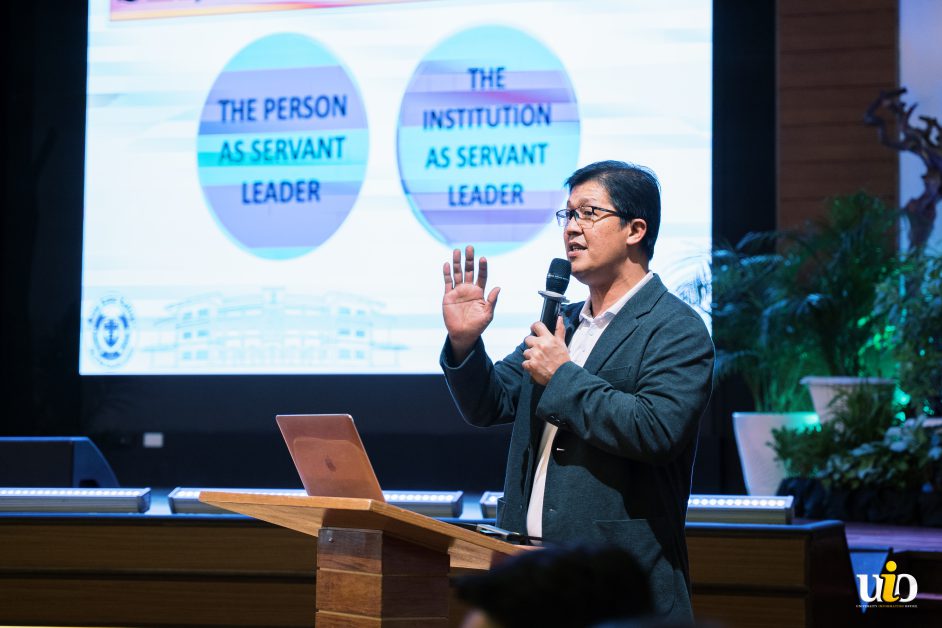
Ultimately, Fr. Villamar emphasized Jesus’ model of servant leadership, where true leadership is rooted in love, humility, and divine authority. He posed reflective questions: “When we make decisions, are they aligned with the will of God? Are they made with love? Do we pray for our own decisions?”
After the first series of talks, the CICM leaders were grouped per school to discuss different ways that servant leadership is practiced in their institution. SLU shared its latest established facilities and programs, namely the Talged Center, community pantries, and its programs in Crisis Management, and Risk Reduction.
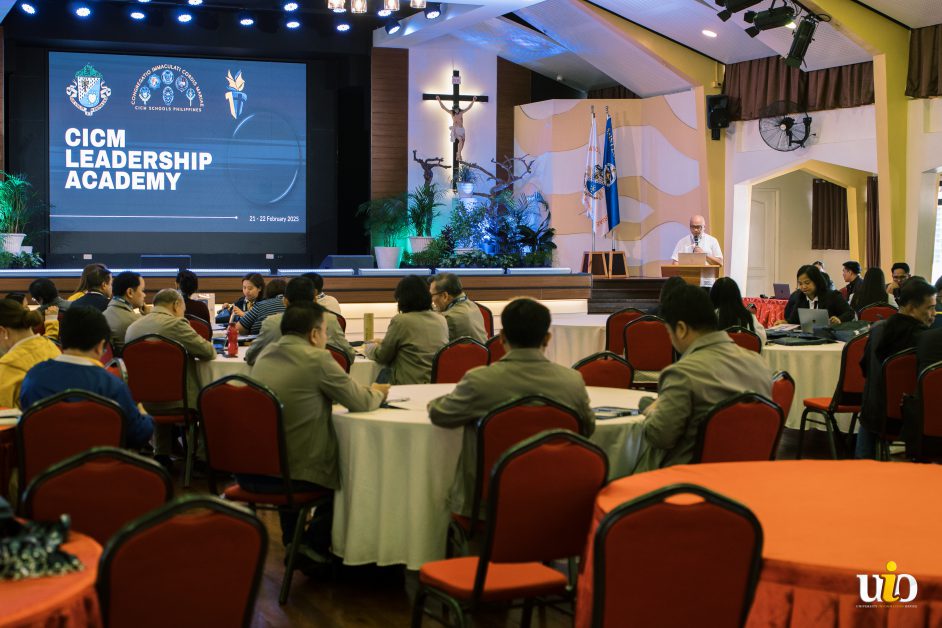
Beginning the second series of plenary sessions, Dr. Manalang delved into governance and leadership according to the Philippine Catholic Standards. She expounded on elevating the standards of Catholic schools for benchmarking stating, “An excellent Catholic School is governed and administered by servant-leaders who are Christian witnesses professionally qualified, and recognized by competent Church authority.”
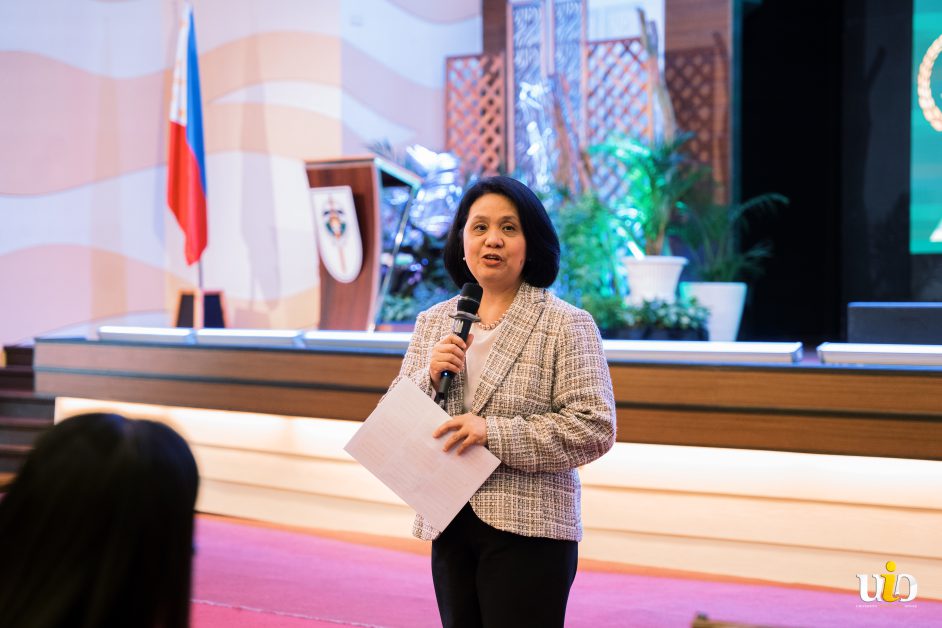
Dr. Manalang also talked about the role of transformational leadership in making a difference in the lives of the community, which places a high value on building strong community bonds and encouraging both students and educators to achieve greater heights. She shared program reports from HAU that offered insights for CICM schools, including a concert-for-a-cause for jeepney drivers on strike, donations for the West Philippine Sea advocacy, and outreach programs focused on livelihood activities for women and youth empowerment, aligning with SDG 16 (Peace, Justice, and Strong Institutions) and SDG 17 (Partnerships for the Goals).
Reflecting on Day 1, Fr. Villamar said that “leadership is a process. Even if you are very long in the position, learning does not stop.”
Fr. Maniwang then added that “leadership is not easy. It’s not a work in the park; it entails collaboration. It’s something that we have to carry.”
CICM Leadership Academy Day 2: Strengthening visionary leadership and internationalization
The speakers of Day 2 were Bro. Jonel B. Dalimag, CICM, CICM Home Sweet Home Administrator; Pilar I. Romero, PhD, Dean of the College of Education, University of Santo Tomas (UST); and Deputy Director QS, Asst. Professor and ASEAN Engr, Nestor R. Ong of UST.
In discussing the first session on “Leadership in the Context of the CICM Spirituality and the Context of the CICM Spirituality and Charism, Bro. Dalimag discussed the “good and beautiful mission.” Such a mission, he explained, entails three goals: spirituality, charism, and leadership. This discussion focused on the Fr. Theophile Verbist’s journey as the founder of CICM and its longing impact in the Philippines.
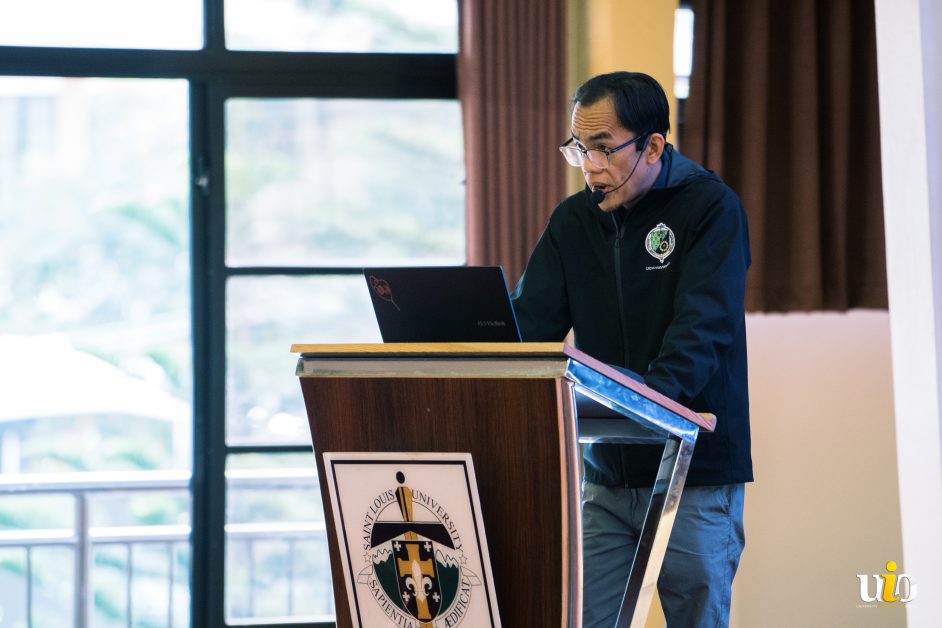
Bro. Jonel talked about how charism is one of the obligations of CICM Schools. He stressed that Verbist and other missionaries’ charism focuses on establishing foundations. “For Verbist, it’s the CICM,” he pointed out. He also recalled the CICM Spirituality, that the congregation is an international religious missionary institute that was founded by Verbist. “Spirituality is not easy. It demands to be faithful, carry our own cross just as Jesus did to fulfill His mission,” he said.
Meanwhile, Dr. Romero shed light on visionary leadership with an emphasis on high performing and high affirming leaders. She highlighted that visionary leadership implements a positive school culture, distributes authority structures, heightens relational trust, and subscribes to faith leadership. “Mission is not something that is static, it should be dynamic,” she stressed. She also stressed that a school culture should be a “shared culture,” which means having a collective experience that is rooted in hope. “Hope is our anchor amidst perilous waters because we know that hope doesn’t disappoint,” she said.
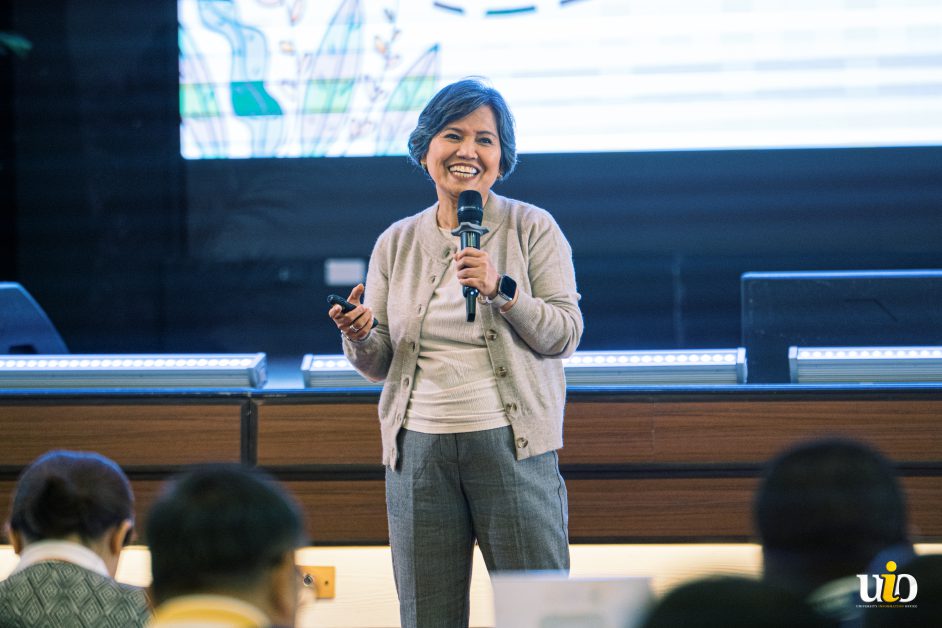
Thereupon, Asst. Prof. Ong gave a lecture about “Leadership in the Context of Internationalization,” which highlighted the progress for recognition internationally. In executing international efforts, he talked about creating an internationalization culture to promote diverse perspectives and global engagement, as well as foster partnerships with international institutions to enhance educational offerings and opportunities.
Prof. Ong also spoke of creating regulatory and policy frameworks. He explained tactively advocating policy changes that foster international engagement and improve educational framework and strategic planning to achieve successful outcomes in internationalization. In the international experiences of countries such as Australia and Canada, the Philippine Higher Education Institutions (HEIs) can adopt inclusive policies that reduced retention rates and increased enrollment, and partnering to various industries that can employ students after graduation.
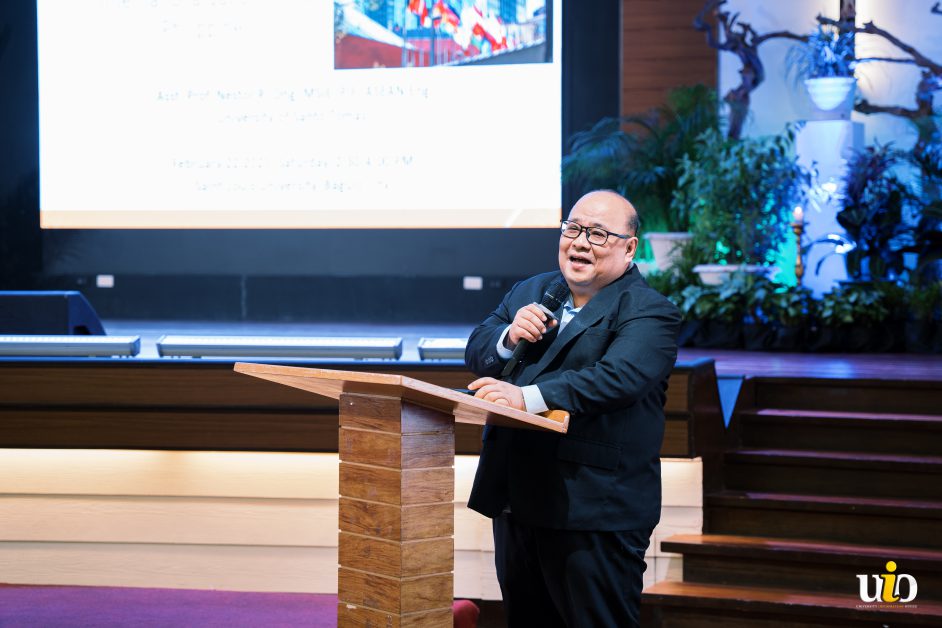
In closing, the leaders were grouped to discuss, share, and reflect about the speakers’ discussions, and what can be applied to the schools. After all, the discourses centered on the theme that “leadership is a mission, not a position.”
The CICM Leadership Academy was organized to give a glimpse of leadership– one that looks up to our true leader: Jesus Christ, and thus one that pursues purposeful excellence. (Article by Michael Dadd, UIO Intern | Photos by Faithe Janerie Dugay and Jaymark Borja, UIO Interns)
